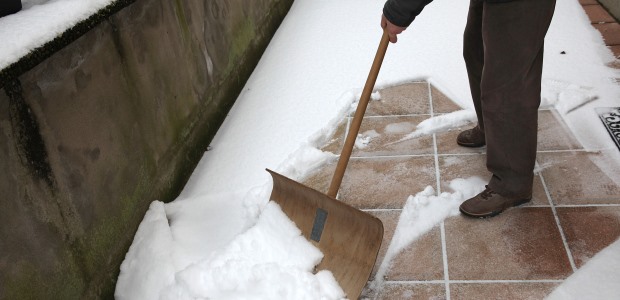
MIOSHA, Workers' Compensation Agency Join Forces for Winter Safety Campaign
"Every employer should have an effective safety and health management system in place to protect its most valuable asset: its employees," said MIOSHA Director Martha Yoder.
The Michigan Occupational Safety and Health Administration (MIOSHA) and the Michigan Workers' Compensation Agency have launched a "Don't Roll the Dice with Snow and Ice" public service campaign, offering tips for worker safety and reduced workers' compensation costs during the winter, which can be a particularly hazardous time for employers and employees. According to the Accident Fund Insurance Company of America and United Heartland, during the winter, slips and falls represent one-third of all workers' compensation claims in Michigan, the agencies report.
"Every employer should have an effective safety and health management system in place to protect its most valuable asset: its employees," said MIOSHA Director Martha Yoder. "As part of this program, they should prepare for winter conditions and provide helpful information to their employees on how to avoid injury and illness."
"Worker injuries can negatively affect a business's bottom line, resulting in increased workers' compensation and insurance costs, overtime, and lost work days for employees," WCA Director Kevin Elsenheimer added. "By taking the proper safety precautions this winter, job providers can avoid nasty slips and falls that will cost them in the future."
Their campaign offers these recommendations:
- Keep all walkways cleared of ice and snow.
- Have de-icing products handy for hard-to-remove ice or snow.
- Make sure all walkways and passageways are clearly marked and well lit.
- Be careful of slippery surfaces inside buildings.
- Wear slip-resistant footwear.
- Practice safe walking on slippery surfaces by taking slow, small steps.
- Avoid carrying heavy loads that may offset your balance.
- Clearly mark or barricade hazardous areas.
- Wear sunglasses on sunny days to lessen winter glare.
- Take extra precautions when entering and exiting vehicles.
- Know the symptoms of frostbite and the first aid steps to address it.
The National Safety Council also released a statement regarding winter weather safety as must of the eastern United States was experiencing cold and snowy weather. It said more than 600 weather-related deaths occur each year, with 25 percent due to temperature extremes, and an average of 11,500 injuries requiring medical treatment occur each year from shoveling.
"Winter weather brings a whole new set of safety challenges both inside and outside of the home," said Deborah A.P. Hersman, president and CEO of NSC. "Planning ahead and making the proper adjustments can keep families safe until temperatures warm back up."